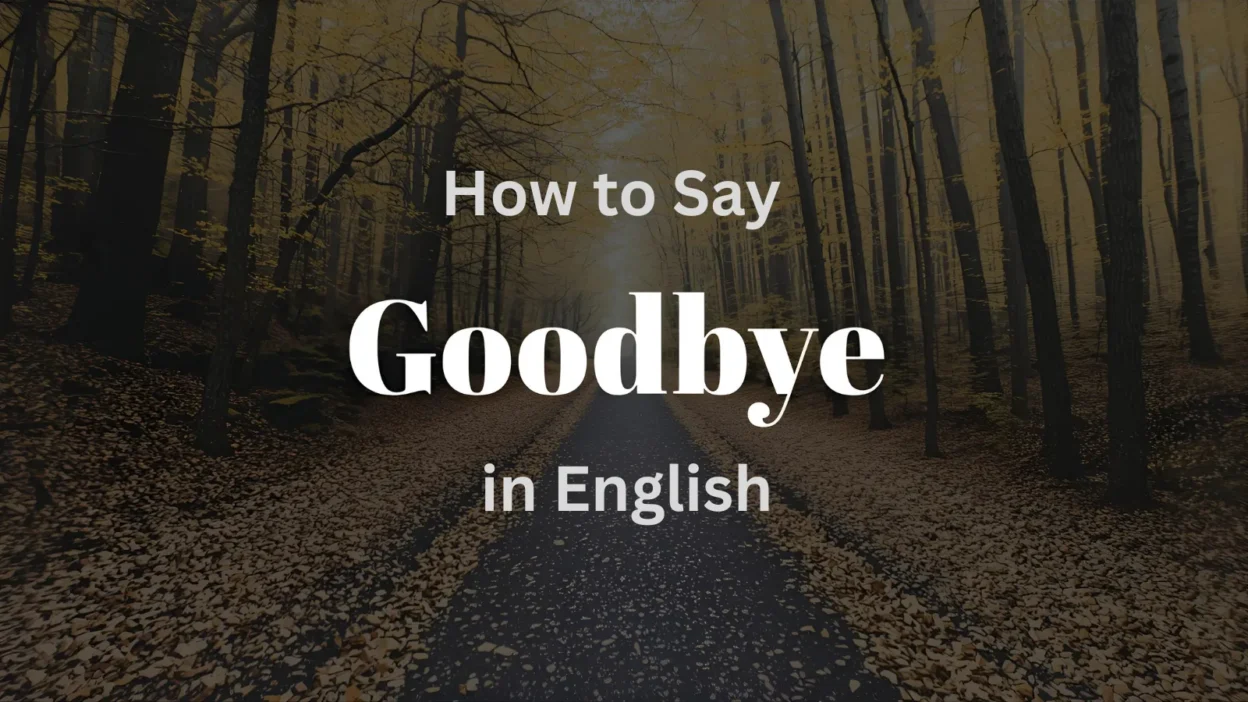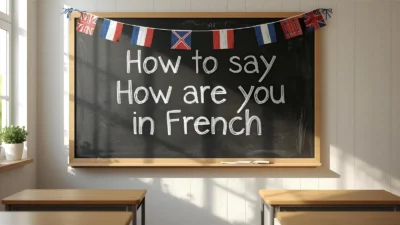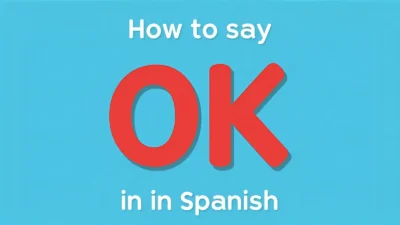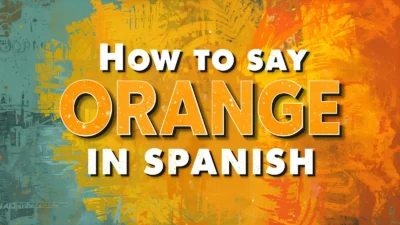If you want to learn how to say goodbye in English, this guide will help you. Saying goodbye politely is an important part of everyday conversations, whether in person, on the phone, or online. In this guide, you’ll learn the most common phrases, how to use them in different situations, and tips to make your farewells sound natural and friendly. Using the right expressions will help you leave a positive impression every time.
Learning how to say goodbye in English is an important part of everyday communication. From casual phrases like see you later to polite expressions such as have a great day, English offers many ways to say farewell.
Mastering these variations helps you choose the right tone whether speaking to friends, colleagues, or strangers in formal situations. Using the right goodbye also shows warmth, respect, and confidence in your communication.
Say Goodbye in English
Let’s explore 15 unique and everyday ways to say goodbye in English, each with a real-life dialogue and some cultural or historical context.With practice, you’ll sound more natural and leave a positive impression in any conversation.
15 Ways to Say Goodbye in English
| No. | English Phrase | Meaning / Usage |
|---|---|---|
| 1 | Goodbye | Standard farewell, neutral |
| 2 | Bye | Short, casual goodbye |
| 3 | See you later | Informal, expect to meet again soon |
| 4 | Take care | Polite, caring farewell |
| 5 | Catch you later | Informal, friendly |
| 6 | See ya | Very casual, friendly |
| 7 | Talk to you soon | For friends or colleagues |
| 8 | Have a great day | Polite, positive farewell |
| 9 | Farewell | Formal, rarely used in daily speech |
| 10 | I’ve got to go | Casual way to end a conversation |
| 11 | Until next time | Semi-formal, warm farewell |
| 12 | See you tomorrow | When meeting is planned |
| 13 | Later | Very casual, slang-like |
| 14 | I’ll see you around | Informal, when unsure of next meeting |
| 15 | Bye for now | Friendly, temporary goodbye |
1. Goodbye

Origin:
A contraction of “God be with ye,” this is the most traditional and formal way to part.
Example:
👤 User A: I’ll see you next week.
👤 User B: Goodbye! Take care.
Use: Formal or polite situations, like business meetings or respectful farewells.
2. Bye
Origin:
A short, casual form of “goodbye” that became common in the 18th century.
Example:
👤 User A: Gotta run. Bye!
👤 User B: Bye! Talk soon.
Use: Casual, everyday farewell.
3. See you later
Origin:
Informal phrase used to indicate you’ll meet again soon—even if not literally “later.”
Example:
👤 User A: I’m heading out. See you later!
👤 User B: See you!
Use: Friendly and informal; suggests future contact.
4. Take care
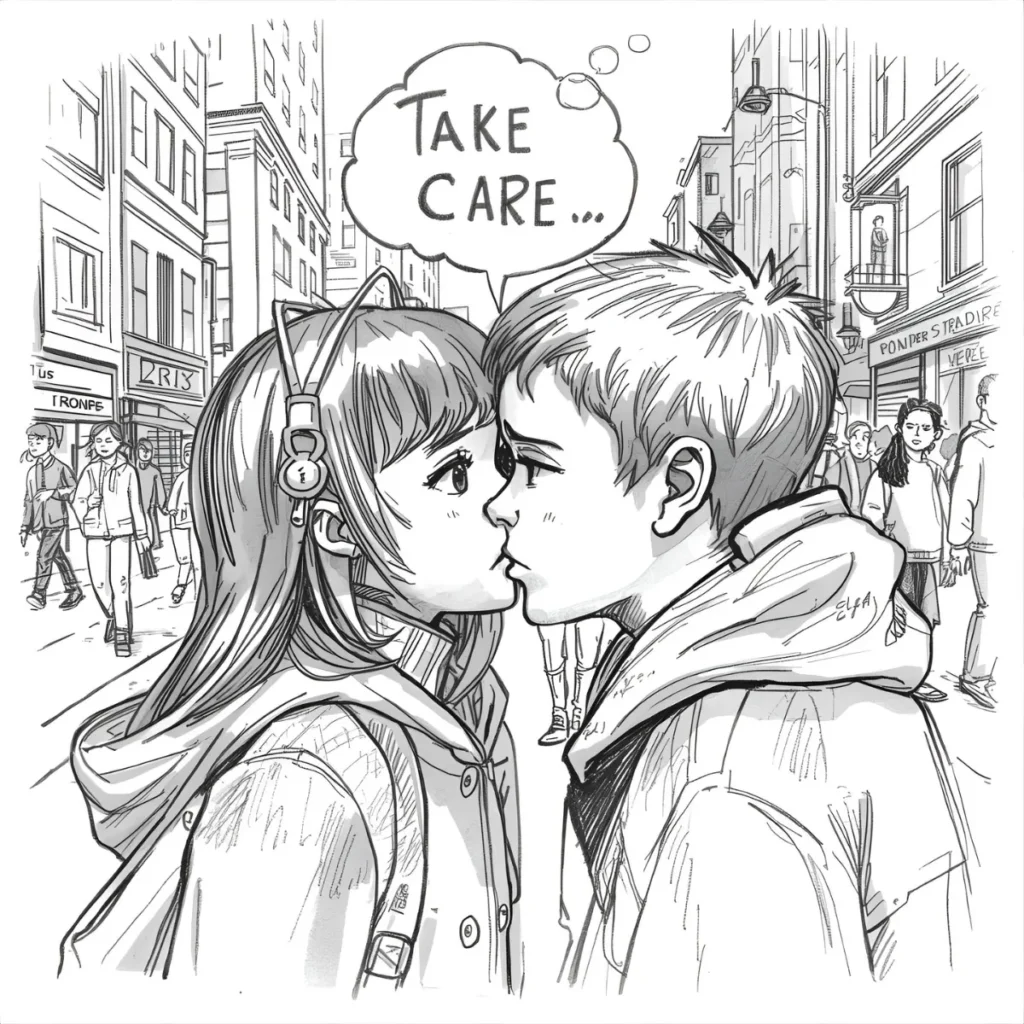
Origin:
This caring phrase started as a health-related farewell and is often used to show concern or kindness.
Example:
👤 User A: Travel safe, okay?
👤 User B: Will do. Take care!
Use: Kind and thoughtful; polite in both formal and personal contexts.
5. Catch you later
Origin:
An American casual spin-off of “see you later,” popular in youth culture.
Example:
👤 User A: I’ve got class now. Catch you later!
👤 User B: You bet!
Use: Casual and cool; mostly used among friends or peers.
6. Peace out
Origin:
Slang phrase rooted in the 1960s peace movement, later adopted by hip-hop and youth culture in the ’90s.
Example:
👤 User A: I’m off. Peace out!
👤 User B: Peace!
Use: Very informal; used in relaxed or humorous settings.
7. Later!
Origin:
A shortened version of “See you later,” used since the late 20th century.
Example:
👤 User A: Alright, I’m done here. Later!
👤 User B: Later, man!
Use: Very casual and often used by teens or young adults.
8. Farewell
Origin:
One of the oldest English parting terms, dating back to the 14th century. It literally means “may you fare well.”
Example:
👤 User A: Farewell, my friend. Safe travels.
👤 User B: Farewell! Until we meet again.
Use: Formal, poetic, or emotional departures.
9. I’m out
Origin:
Popularized in street culture and comedy (especially Dave Chappelle’s “I’m out!” moments), meaning you’re leaving now.
Example:
👤 User A: That’s it for me. I’m out!
👤 User B: Alright, take care!
Use: Slang; informal and assertive.
10. Have a good one
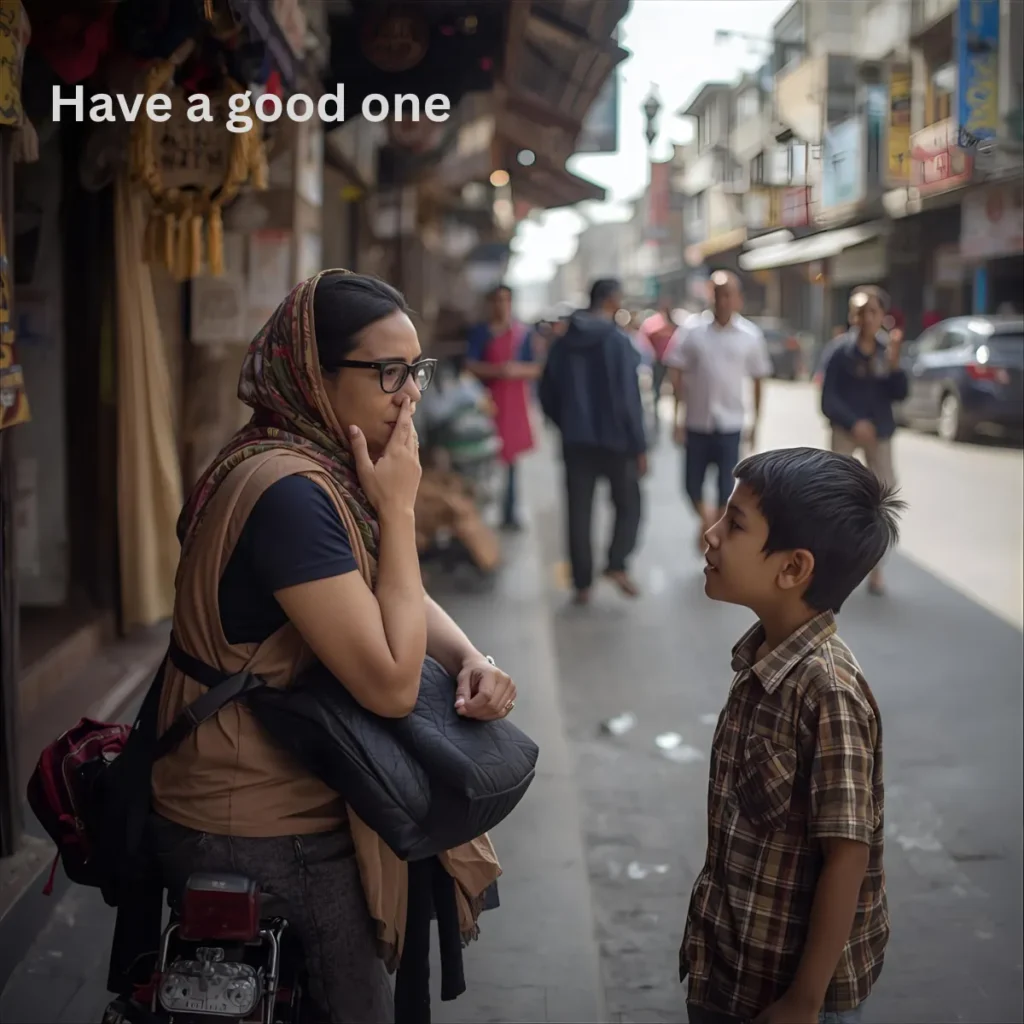
Origin:
Originally American, this phrase became popular in the 1970s as a friendly alternative to “goodbye.”
Example:
👤 User A: Thanks for your help!
👤 User B: Anytime. Have a good one!
Use: Friendly and polite, commonly used in customer service or casual encounters.
11. I gotta bounce
Origin:
Slang from the 1990s hip-hop scene; “bounce” means to leave quickly.
Example:
👤 User A: I gotta bounce, meeting starts in 5.
👤 User B: No worries. Later!
Use: Casual and fast-paced; informal.
12. Until next time
Origin:
A thoughtful farewell that implies the relationship will continue in the future.
Example:
👤 User A: I’ve enjoyed our chat.
👤 User B: Same here. Until next time.
Use: Warm and semi-formal.
13. Bye for now
Origin:
Often used in emails or calls; implies this is just a temporary goodbye.
Example:
👤 User A: That’s all for today’s meeting.
👤 User B: Alright, bye for now.
Use: Professional or casual.
14. So long
Origin:
This term likely came from German (“so lange”) or Scandinavian roots, meaning “for a long time.” Popular in the 1800s and early 1900s.
Example:
👤 User A: I’ll be gone for a while.
👤 User B: So long, my friend.
Use: Slightly old-fashioned, literary, or nostalgic.
15. Laters
Origin:
British slang, a fun and abbreviated way to say “later.” Often used in UK and Australian English.
Example:
👤 User A: I’m off! Laters!
👤 User B: Laters, mate!
Use: Casual, cheeky, and often used in informal UK settings.
FAQs
- What is the most common way to say goodbye in English?
The most common phrase is “Goodbye”, suitable for both formal and informal situations. - Are there informal ways to say goodbye?
Yes — phrases like “Bye,” “See you,” “Take care,” or “Catch you later” are casual and friendly. - How do you say goodbye formally?
Use “Farewell” or “Goodbye” in formal or professional settings. - Can you say goodbye in text messages?
Yes — short forms like “Bye,” “TTYL” (talk to you later), or emojis are common in texts. - Are there regional variations for saying goodbye in English?
Yes — for example, in the UK, people often say “Cheerio” or “Ta-ta”, while in the US, “See ya” is popular. - What’s a polite way to end a conversation?
You can say “It was nice talking to you” or “Take care” to leave a positive impression. - Can goodbye phrases change depending on the relationship?
Yes — with friends, casual phrases work, while with colleagues or elders, polite or formal phrases are better.
Conclusion:
Mastering how to say goodbye in English gives you the ability to adapt your tone depending on the situation. Whether it’s a casual see ya with friends or a professional take care with colleagues, choosing the right phrase leaves a lasting impression. By practicing these variations, you’ll communicate more naturally, politely, and confidently in every setting.
